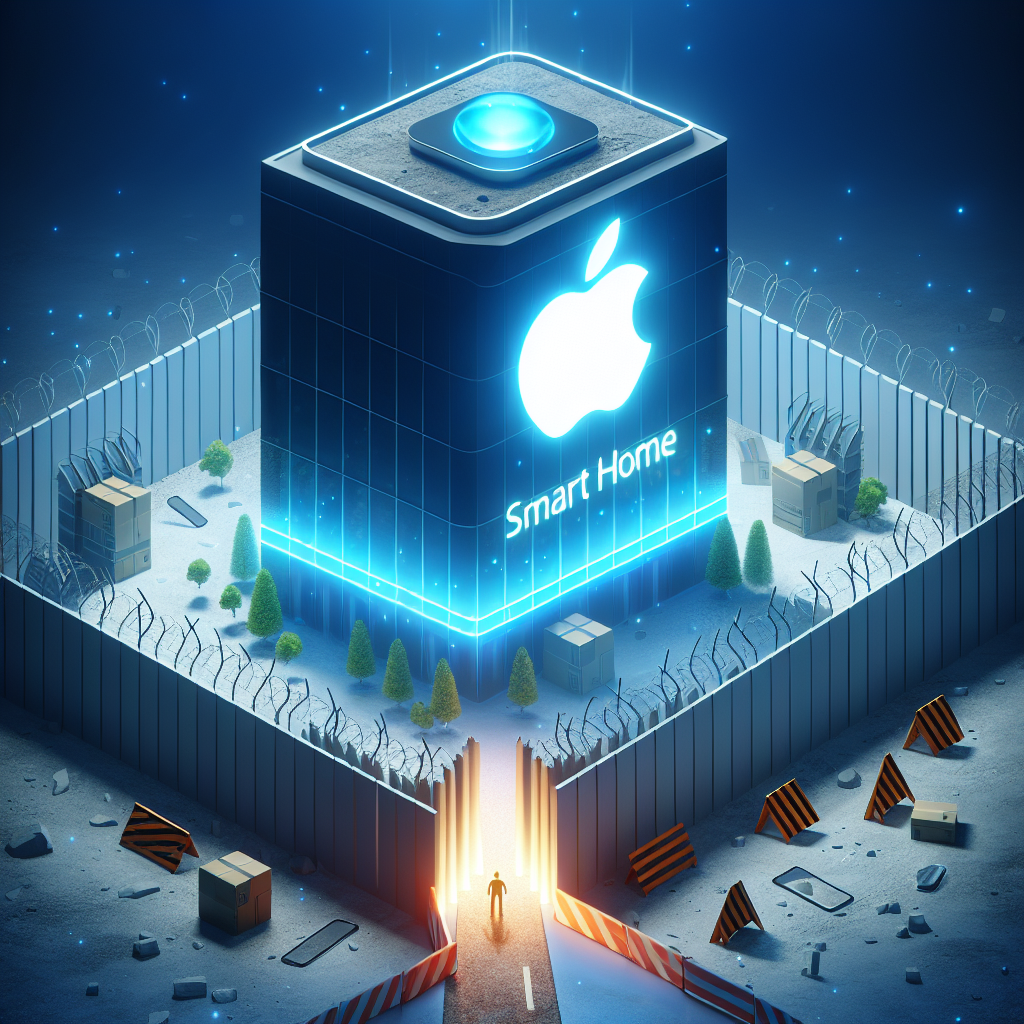
Apple Pledges Itself to Matter Despite Adoption Hurdles as New Smart Home Standard
Apple, the technology leader celebrated for its groundbreaking products and services, is making a significant investment in Matter, the emerging smart home standard governed by the Connectivity Standards Alliance (CSA). In spite of hurdles in adoption and consumer confusion, Apple firmly stands by its commitment to Matter, with the goal of simplifying and harmonizing the smart home experience for consumers worldwide.
What is Matter?
Matter is a comprehensive smart home standard aimed at addressing the divide in the smart home market. Before Matter, consumers frequently found themselves confined to particular ecosystems like Apple Home (formerly HomeKit), Google Home, or Amazon Alexa. This resulted in a lack of interoperability, forcing users to handle multiple apps and devices that struggled to communicate seamlessly with one another.
Matter aspires to break down these obstacles by offering a standardized protocol that operates across all leading platforms, including Apple Home, Google Home, Samsung SmartThings, and Amazon Alexa. This means a single Matter-compatible device could function effortlessly within any of these ecosystems, facilitating a smoother process for consumers to create a smart home setup using various brands and products.
Apple’s Commitment to Matter
As a founding member of the CSA, Apple has significantly contributed to the development of Matter. The company has also shifted its focus from its proprietary HomeKit Accessory Protocol (HAP) towards Matter. According to sources familiar with Apple’s strategies, there will be no further enhancements to HAP. Instead, every forthcoming device supported by Apple Home will be Matter-compliant.
This dedication is not merely a strategic decision but a long-term aspiration to enhance the smart home experience for Apple users. For example, with the introduction of iOS 18, Apple launched a new ultra-wideband auto-unlock feature based on proximity that integrates effortlessly with Matter. This feature showcases Apple’s resolve to promote the Matter standard while improving the user experience.
Challenges in Matter Adoption
Even with its potential advantages, Matter has encountered challenges in achieving widespread acceptance. Numerous manufacturers have halted their efforts to create Matter-compatible accessories due to concerns regarding user experience and the overall integration process. A significant portion of consumers still lacks clarity about Matter, resulting in slower adoption rates than initially expected.
For instance, Apple has not yet fully embraced Matter version 1.2, which was released in October 2023. This update introduced new device categories, such as robotic vacuum cleaners, refrigerators, fans, and air purifiers. While iOS 18 will support robotic vacuums, other devices under the 1.2 specification, including air purifiers, remain unsupported, leading to a disjointed user experience.
The Staggered Rollout of Matter Versions
The gradual rollout of Matter versions has further complicated its adoption. Ideally, a consumer should be able to purchase a Matter-enabled accessory, scan a code, and seamlessly incorporate it into their smart home ecosystem, whether that’s Apple Home, Google Home, or another platform. However, this ideal scenario has yet to become a reality.
For instance, one might acquire a Matter-compatible air purifier only to discover that it is not supported by Apple Home due to the lack of backing for Matter 1.2. This results in a frustrating experience for consumers who may anticipate seamless integration but are instead confronted with limitations and errors.
Major Players and Their Role in Matter
Among the prominent smart home ecosystems, including Google Home, Samsung SmartThings, and Amazon Alexa, only Samsung has fully embraced Matter 1.2 thus far. This suggests that, while Matter has the ability to unify the smart home industry, the speed of adoption varies considerably among different stakeholders.
The CSA has committed to releasing two Matter updates each year. The forthcoming update, version 1.4, is anticipated to arrive in the next couple of months and will likely introduce new features and accessory types like routers, cameras, water heaters, and TVs. These updates are vital for broadening the range of Matter-compatible devices and enhancing overall stability.
The Future of Matter and Smart Homes
Despite the sluggish adoption, the outlook for Matter appears promising. Apple’s support offers a sturdy foundation for the standard, and as more devices and ecosystems adopt Matter, the smart home experience will become increasingly streamlined and user-friendly.
The CSA and its participating companies must prioritize enhancing the user experience and ensuring a more synchronized rollout of new Matter versions. This will foster consumer trust and encourage wider acceptance of the standard. With the addition of new accessory types like robotic vacuums in Apple Home, we are beginning to see the potential of Matter to transform the smart home landscape.
Conclusion
Matter has the potential to serve as the universal standard that the smart home industry has long sought. Although its adoption has been slower than expected, Apple’s steadfast commitment to Matter points to a bright future for the standard. As Matter continues to develop and gain backing from key players, it will undoubtedly make the smart home experience more cohesive, reliable, and accessible to consumers globally.
Frequently Asked Questions (FAQs)
Q1: What is Matter, and how does it differ from previous smart home standards?
A1: Matter is a comprehensive smart home standard created to unify diverse smart home ecosystems like Apple Home, Google Home, Samsung SmartThings, and Amazon Alexa. Unlike past standards, which were often proprietary and confined to certain brands or platforms, Matter aims to make smart home devices interoperable across various ecosystems.
Q2: Why is Apple focusing on Matter instead of continuing with HomeKit?
A2: Apple has pivoted to Matter because it provides a more universal and streamlined experience for users. By adopting Matter, Apple intends to remove the fragmentation in the smart home sector, enabling users to incorporate a wider array of devices into their Apple Home ecosystem.
Q3: What challenges has Matter faced in its adoption?
A3: Matter has encountered issues regarding user experience, confusion about compatibility, and the staggered release of new versions. These factors have decelerated its adoption rate, as some manufacturers have paused their development of Matter-compatible devices due to these obstacles.
Q4: Which major smart home platforms currently support Matter?
A4: Currently, Samsung SmartThings is the only major platform that has fully backed Matter version 1.2. Other platforms like Apple Home, Google Home, and Amazon Alexa have not yet implemented full support, though they are expected to do so in upcoming updates.
Q5: What can we expect from the upcoming Matter version 1.4?
A5: The upcoming Matter version 1.4 is anticipated to feature new functionalities, improvements in stability, and support for additional accessory types such as routers, cameras, water heaters, and TVs. This update will further extend the range of Matter-compatible devices and enhance the overall user experience.